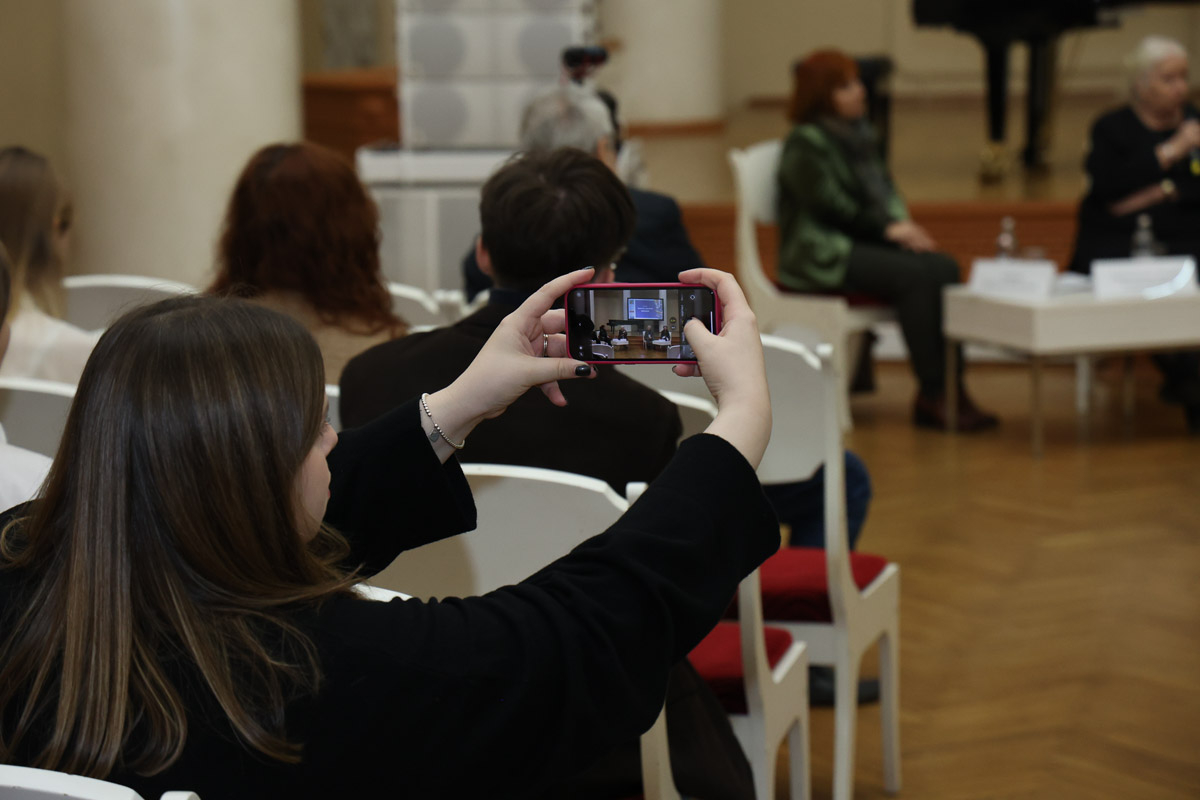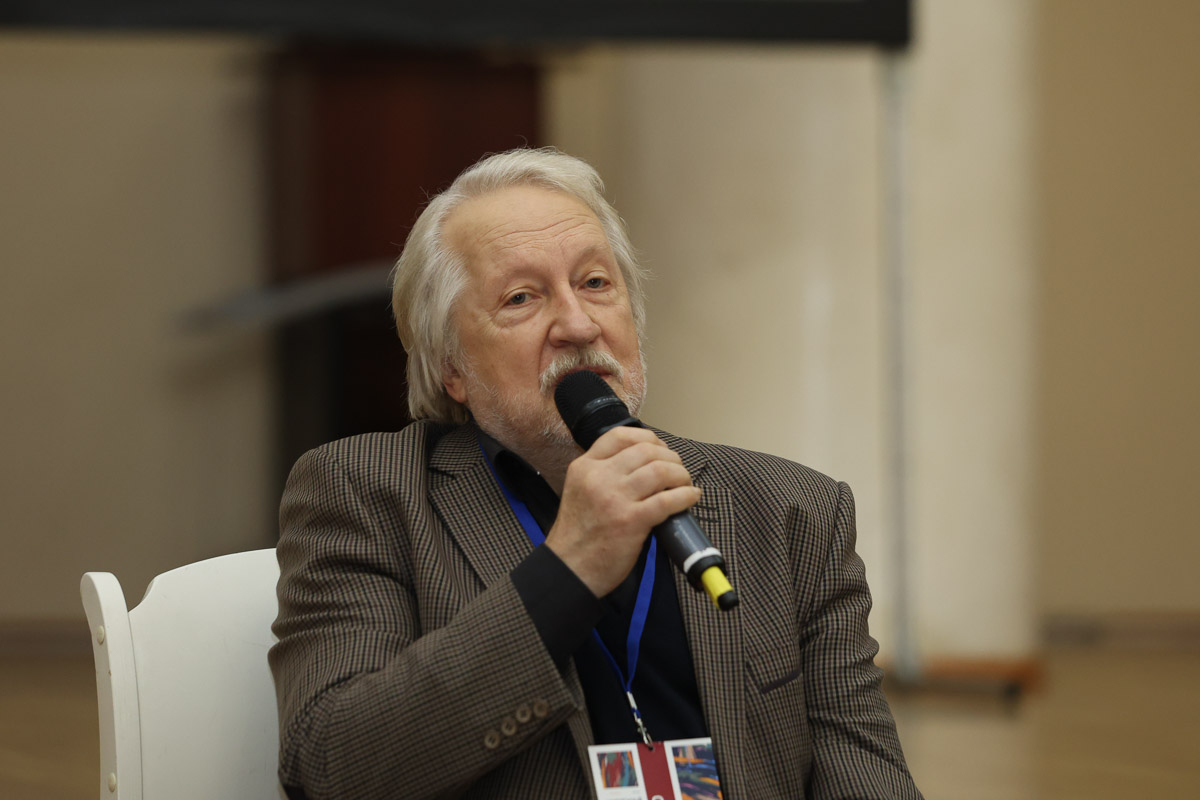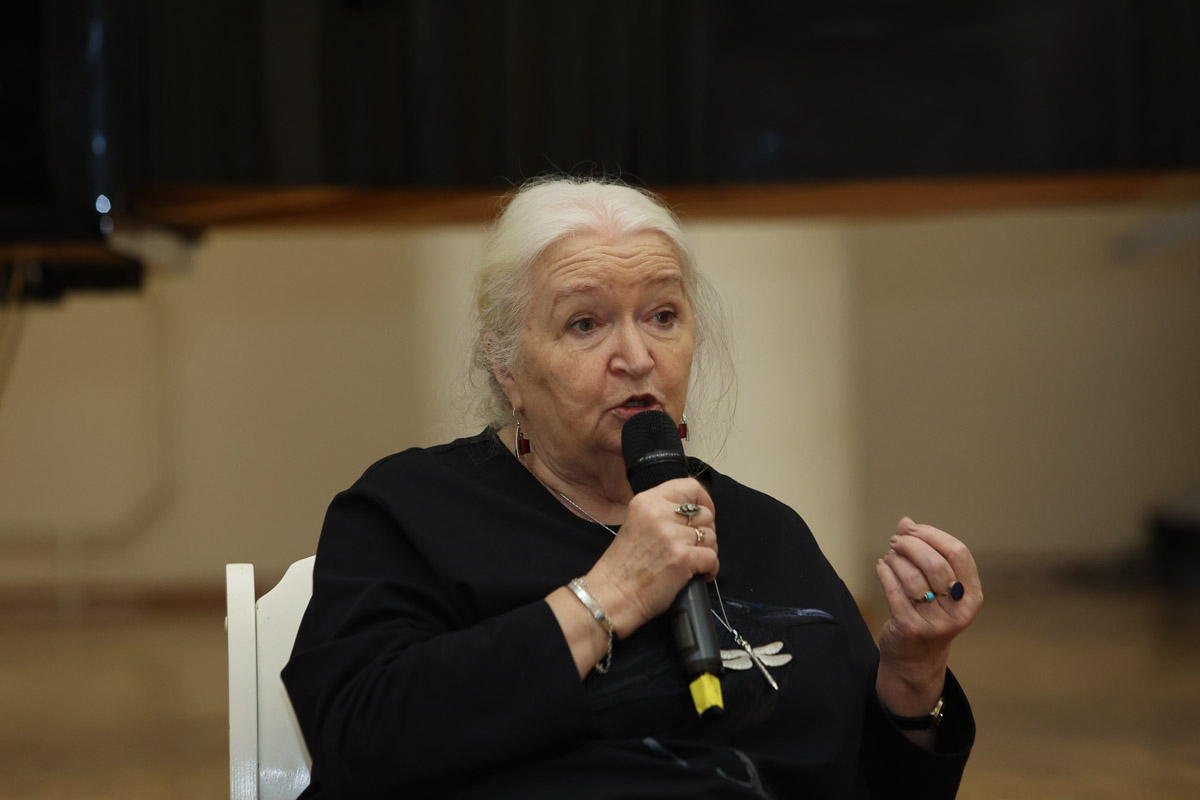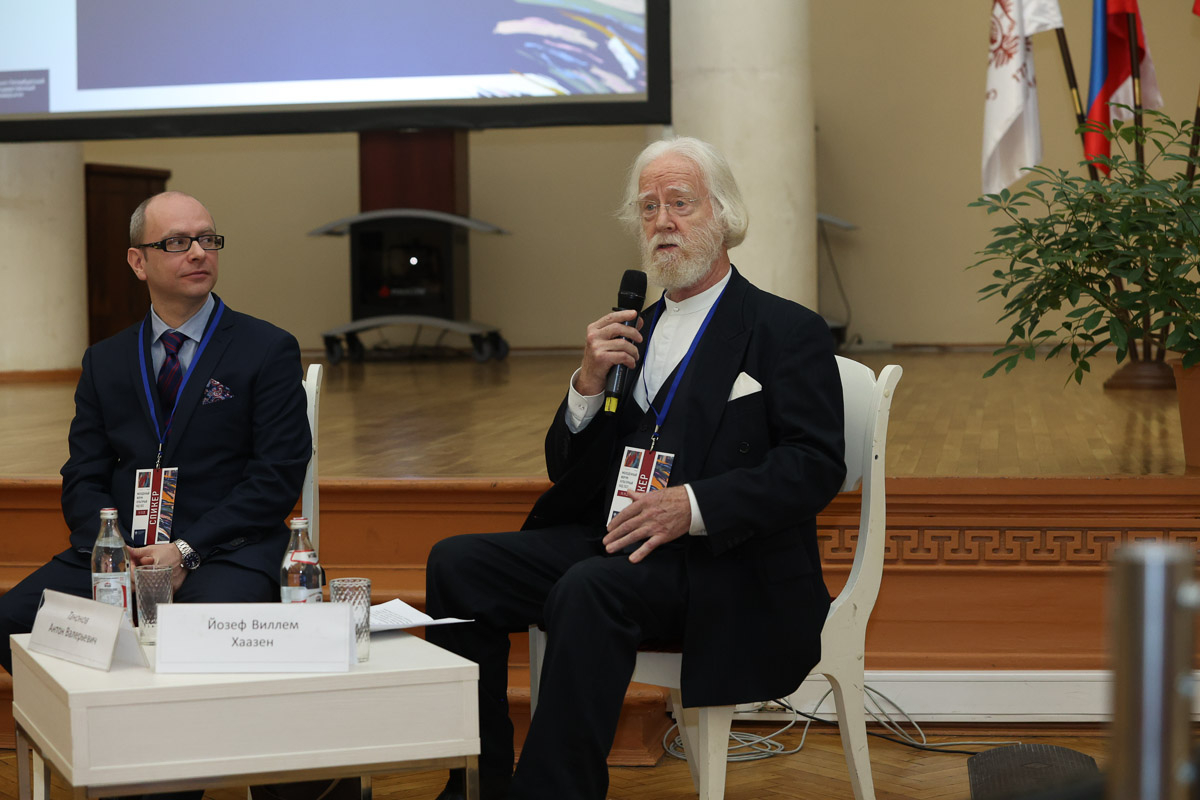The St Petersburg University Youth Cultural Forum addresses the issue of teaching creative minds
What is to be taught to future composers and artists, and what is to be done to help them find work in their field after graduation? Why is it important to have a real life dialogue between a student and a teacher? Why is Art important to mankind? The participants of the discussion panel "The Ecosystem of Creative Education" sought answers to these questions during the Youth Forum ’Culture Code 2022′ held at St Petersburg University.
’Ecology starts in our hearts ─ we love and value everything we do in life. It is continued in our heads, and then in our actions. Feeling, thinking and acting are related, although, as we know, they are often in conflict with each other. Knowledge, work, love, and right actions are therefore important for achieving harmony in life,’ said Jozef Willem Haazen, Professor of St Petersburg University and Honorary Director of the Royal Carillon School ’Jef Denyn’ (Belgium). ’The visual arts offer unique opportunities to develop this process. I am talking about the fine arts, not about mass culture, which is pervading our consciousness in a particularly strong way today.’ The Professor emphasised that music, painting, literature, and philosophy play an important role in achieving harmony, and that artists, especially educators, have an important role to play in this sublime process.
Professor Tatiana Chernigovskaya, Director of the Institute for Cognitive Studies at St Petersburg University, asked the participants to consider the issues of what culture is, what the criteria for a work of art are, and whether art is a purely elitist phenomenon. The Professor expressed her belief that in order to understand, for example, painting, one must be well prepared and have a certain level of observation. According to her, art will be the only thing that will determine the value of humanity at the end of world history.
’We do not have a computer in our heads. It is written in any textbook that the brain is an organ that receives information from the outside world, processes it, and responds to it. However, this is only a small fragment of the real picture. ’The Creator, or, if you prefer, evolution, made us so that we can do algorithmic work ─ this is science ─ and something that is not even clear how to describe,’ said Tatiana Chernigovskaya.
We are not machines that process incoming information like a meat grinder. Human brain is designed to create knowledge and meanings. This is what makes it different from other brains on the planet. It is the meaning that matters, not what we have measured and counted with a logarithmic ruler, a tomograph, and an encephalograph, or machines that fly around in space.
Professor Tatiana Chernigovskaya, Director of the Institute for Cognitive Studies at St Petersburg University
Professor Chernigovskaya said that it is difficult to understand what happens in the mind of a composer when they create music, or a genius scientist when they make a discovery. However, the diaries and letters of eminent people of the past reveal a similar pattern: they studied and spent years and decades trying to achieve the desired result, each thinking they would never succeed. The experience accumulated, and eventually this led to a breakthrough. ’What I mean is, don’t underestimate yourselves. Imagination is mightier than reason and more powerful than knowledge because it has no boundaries. Albert Einstein also believed in intuition as "the intuitive mind is a sacred gift and the rational mind is a faithful servant". You wouldn’t expect a physicist to say that. Intuition comes first, and if it hints at something, just open your eyes and follow your heart. Why? Is it the right thing to do? It might be a mistake, but if you miss this very moment, there might be no other path to take,’ said Tatiana Chernigovskaya.
Ivan Uralov, Honoured Artist of the Russian Federation, Senior Deputy Dean of the Faculty of Arts at St Petersburg University, added that future members of the creative professions need to learn to trust not only themselves, but also their teachers. ’It is a trust in their peers. We belong to the same workshop ─ the artistic one ─ and it is different from all the others. Taking pride in this, you must understand that people who teach us are not service personnel, they are the Teachers, with a big T,’ said Ivan Uralov. ’They have a lot of experience in creative work and have already walked the road that you still have to take. You can be more talented, but you cannot be more experienced at this stage. In art, it is very important to learn from experience and to appreciate the teacher, and the teacher should appreciate you and hope that you will surpass them.’ As an example, Ivan Uralov referred to the training of artists in the workshops of the great Renaissance artists: they gradually gained experience by observing and helping their teacher, and once they surpassed them, they began their own creative journey.
I believe mutual trust, love and respect of a talented person for another person’s talent are essential in the Arts.
Ivan Uralov, Senior Deputy Dean of the Faculty of Arts at St Petersburg University
Creative careers take a long time. For example, it may take a professional composer almost 20 years to graduate from a conservatory, but many young musicians have trouble finding work after completing their studies. Anton Tanonov, Head of the Department of Special Composition and Improvisation at the Rimsky-Korsakov St Petersburg State Conservatory, Chairman of the St Petersburg Union of Composers, said that even teachers cannot tell students where their future employment might lead them, so graduates additionally master related careers and get jobs in publishing houses or music schools.
It takes a lot to claim the right to compose music, bring it to the audience, and create it in the hours free from other work. However, perhaps for the first time ever, we are just one step away from having a composer’s profession appear in the Russian National Classifier of Economic Activities.
Anton Tanonov, Chairman of the St Petersburg Union of Composers
’I was lucky to be part of the expert team that worked on the document. Our task was to describe something that is impossible to describe ─ creativity. How to do it? The way we did it was similar to the way our educational system is structured. We just listed all the activities that a composer can do,’ said Anton Tanonov.
Thus, for example, the Russian National Classifier of Economic Activities would indicate that a composer writes music for acoustic instruments, from a miniature to a symphony for performing arts, which includes theatre, cinema and audiovisual productions. Anton Tanonov also mentioned the cinema and game industries as some of the last havens of symphonic music in the modern world: a video game may require two or three hours of musical material, which is often created by prominent symphonic orchestrators. The composer should also be able to create electronic music and be proficient in music arrangements. Anton Tanonov said that listing the profession in the Russian National Classifier of Economic Activities will create new jobs in philharmonic societies, theatres, film and play studios and reduce the number of low-skilled amateur composers. Current students of conservatoires, in turn, will have the opportunity to find employment in the specialty they have been mastering for so long.
The other speakers included: Grigory Zaslavsky, Rector of the Russian Institute of Theatre Arts; Alexander Bonduriansky, Professor of Moscow State Tchaikovsky Conservatory; Svetlana Lavrova, Vice-Rector for Research and Development at the Vaganova Academy of Russian Ballet; Anton Tanonov, Head of the Department of Special Composition and Improvisation at the Rimsky-Korsakov St Petersburg State Conservatory; Erich Poyntner, Secretary General, Austrian Association of Teachers of Russian Language and Literature (Austria); and Anna Silyunas, Director of Casa de Rusia (Spain).
The programme of the Youth Forum "Culture Code 2022" included a masterclass "Instrumental Dialogue in Chamber Ensemble" by Maxim Puryzhinsky, a laureate of international competitions, Associate Professor in the Department of Chamber Music and String Quartet Studies at Moscow State Tchaikovsky Conservatory and the Gnesin Russian Academy of Music. The evening programme included a chamber music concert at the Benois Family Museum in memory of Mikhail Meyer, an outstanding Russian turkologist and a specialist in Ottoman studies, President of the Institute of Asian and African Countries at Lomonosov Moscow State University.
The exhibition hall of the University hosted the exhibition ’Preserving traditions and looking into the future’, where visitors could see the works of young artists from St Petersburg University, the Saint Petersburg Stieglitz State Academy of Art and Design, and the Institute of Art Education at the Herzen State Pedagogical University of Russia.






